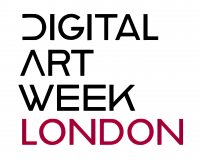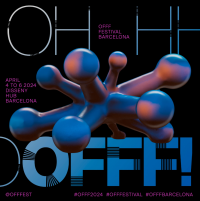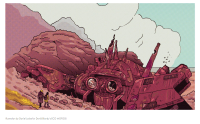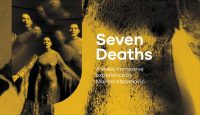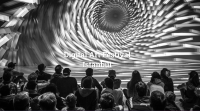Text by Caterina Sbrana.
“Our Galleries are temporarily closed due to current coronavirus restrictions. We look forward to welcoming you back again soon”.
This message is on the home page of the Serpentine Galleries website and it’s similar to others we read in many other museum sites, due to the health emergency. However, the art galleries have not stopped and have continued to carry on their program presenting online exhibitions.
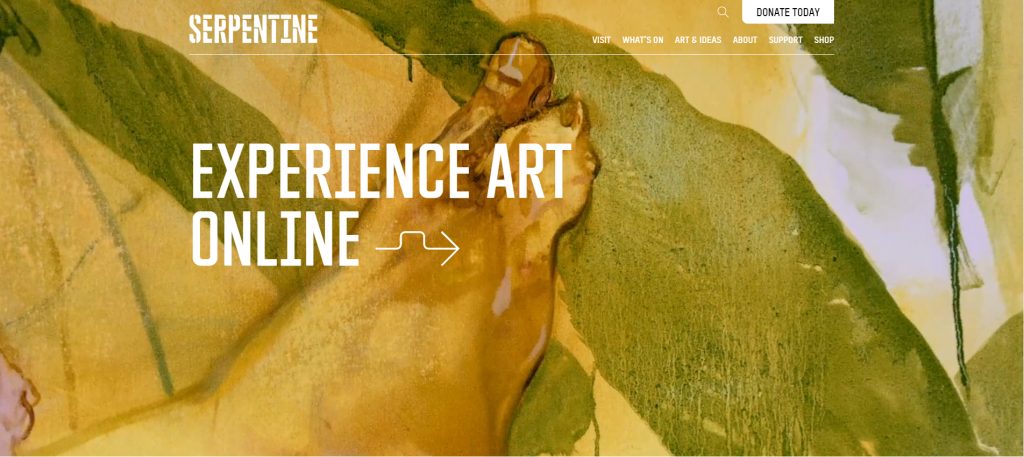
Screenshot image of the Serpentine Galleries home page; https://www.serpentinegalleries.org/
The Serpentine Galleries’ basic idea is described in the Arts Technologies section: “The Arts Technologies programme at the Serpentine Galleries proposes critical and interdisciplinary perspectives on advanced technologies through artistic interventions. Challenging and reshaping the role that technologies can play in culture and society is part of the Serpentine’s commitment to supporting new artistic experiments at what has now become a historical intersection. The programme initiates and supports artists in developing ambitious artworks that deploy advanced technologies as a medium, tool or topic, often operating beyond gallery walls”.
The Serpentine Galleries present online, without any registration, a free programme of films, podcasts, articles, exhibitions, live events and technological innovation. Entering the What’s on section of the Serpentine we find a whole series of extraordinary artistic initiatives in which technology meets art or vice versa.
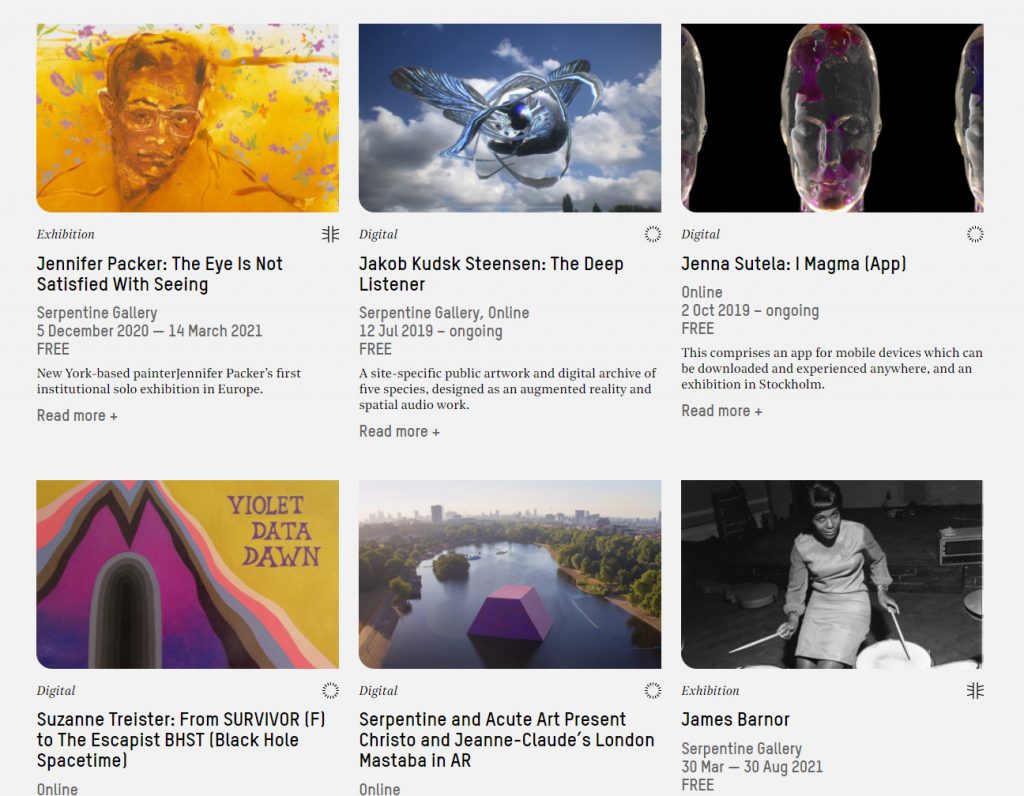
Screenshot image of What’s on section where we find exhibitions and different digital works; https://www.serpentinegalleries.org/whats-on/
I would suggest you to visit the current exhibition by Jennifer Packer, titled “The Eye Is Not Satisfied With Seeing”, which will continue until March 2021 (https://www.serpentinegalleries.org/whats-on/jennifer-packer/) where we can admire portraits of artists, monochromatic paintings, drawings and also the famous Say Her Name, “painted in response to the suspicious death of Sandra Bland, a Black American woman who is largely believed to have been murdered while in police custody in 2015”.
At the same time I suggest to put on the agenda a next exhibition that will be inaugurated on 30 March 2021 and will continue until 30 August 2021, by James Barnor, a British-Ghanaian photographer (https://www.serpentinegalleries.org/whats-on/james-barnor/).
The Serpentine Galleries present, since the 70s, a research in art linked to the use of modern digital technologies in a dialogue between technology and art, which is very effective especially when the latter deals with universal issues such as ecology, the climate emergency or equality. In the field of digital art, the Galleries deal with understanding the effect of digital technologies on artistic field.
The site is very interactive and it is easy to find ongoing initiatives. From the home page you enter in Experience art online, from here you can choose the Art & Ideas section and then deepen a topic of interest by exploring exhibitions, listening to interviews with artists, reading focused interventions on particular topics.
In 2020, Serpentine celebrated its 50th anniversary and for this event a special page on the website was opened: 50 years of programmes, projects and events are covered. In it we read that “Global events have significantly changed our planned programme but we hope that you will join us online for regular podcasts, videos and articles exploring art, artists and the themes that drive our work”.
https://www.serpentinegalleries.org/


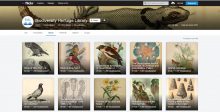

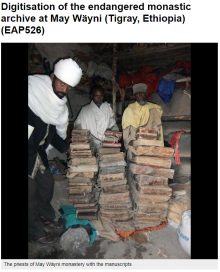
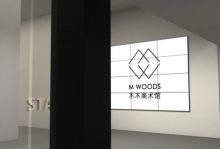
 If you have interesting news and events to point out in the field of digital cultural heritage, we are waiting for your contribution.
If you have interesting news and events to point out in the field of digital cultural heritage, we are waiting for your contribution.


